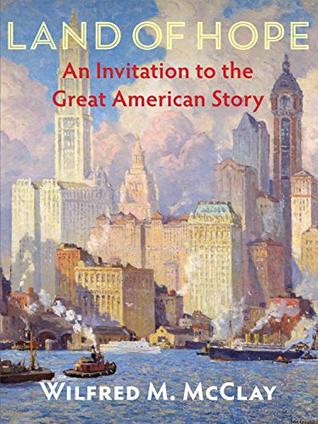More on this book
Community
Kindle Notes & Highlights
Started reading
October 3, 2019
A culture without memory will necessarily be barbarous and easily tyrannized, even if it is technologically advanced. The incessant waves of daily events will occupy all our attention and defeat all our efforts to connect past, present, and future, thereby diverting us from an understanding of the human things that unfold in time, including the paths of our own lives.
As will be clear, I have chosen to emphasize the political history of the United States at every turn, treating it as the skeleton of the story, its indispensable underlying structure. This emphasis is particularly appropriate for the education of American citizens living under a republican form of government.
But by and large, “history” is interested in the eruptions of the extraordinary into the flow of the regular. It must leave out so very much.
both sorts of readers, I try to keep before us the recognition that history is not just an inert account of indisputable and self-explanatory details. It is a reflective task that calls to the depths of our humanity. It means asking questions, and asking them again and again, and asking fresh questions as the experience of life causes fresh questions to arise.
Hope has both theological and secular meanings, spiritual ones as well as material ones. Both these sets of meanings exist in abundance in America. In fact, nothing about America better defines its distinctive character than the ubiquity of hope, a sense that the way
things are initially given to
us cannot be the final word about them, that we can neve...
This highlight has been truncated due to consecutive passage length restrictions.
Even those who are bitterly critical of America, and find its hopes to be delusions, cannot deny the enduring energy of those hop...
This highlight has been truncated due to consecutive passage length restrictions.
much of what passes for cynicism in our time is little more than naïveté in deep disguise.
That means approaching the work of criticism with constructive intentions and a certain generosity that flows from the mature awareness that none of us is perfect and that we should therefore judge others as we would ourselves wish to be judged, blending justice and mercy. One of the worst sins of the present –
not just ours but any present – is its tendency to condescend toward the past, which is much easier to do when one doesn’t trouble to know the full context of that past or try to grasp the nature of its challenges as they presented themselves at the time.
We carry the past forward into the present much more than we realize, and it forms a large part of who we are. Even at the moment of birth, we already find ourselves in the middle of things.
The writer Lewis Mumford expressed this surprising process in a single brilliant sentence: “The settlement of America had its origins in the unsettlement of Europe.”
It was over at last, but the extent of the losses and devastation was almost beyond comprehension. The Americans had suffered “only” 117,000 dead and 230,000 wounded, and of those deaths, only 53,000 were combat deaths; most of the others were from disease. But these numbers were tiny compared to the losses of other belligerent nations. The British Commonwealth death toll stood at nearly 1 million; the French 1.4 million, the Russian 1.7 million; the Italian 460,000; the German 1.8 million; the Austrian-Hungarian 1.2 million; and the Turkish 325,000. The total number of military and civilian
...more


